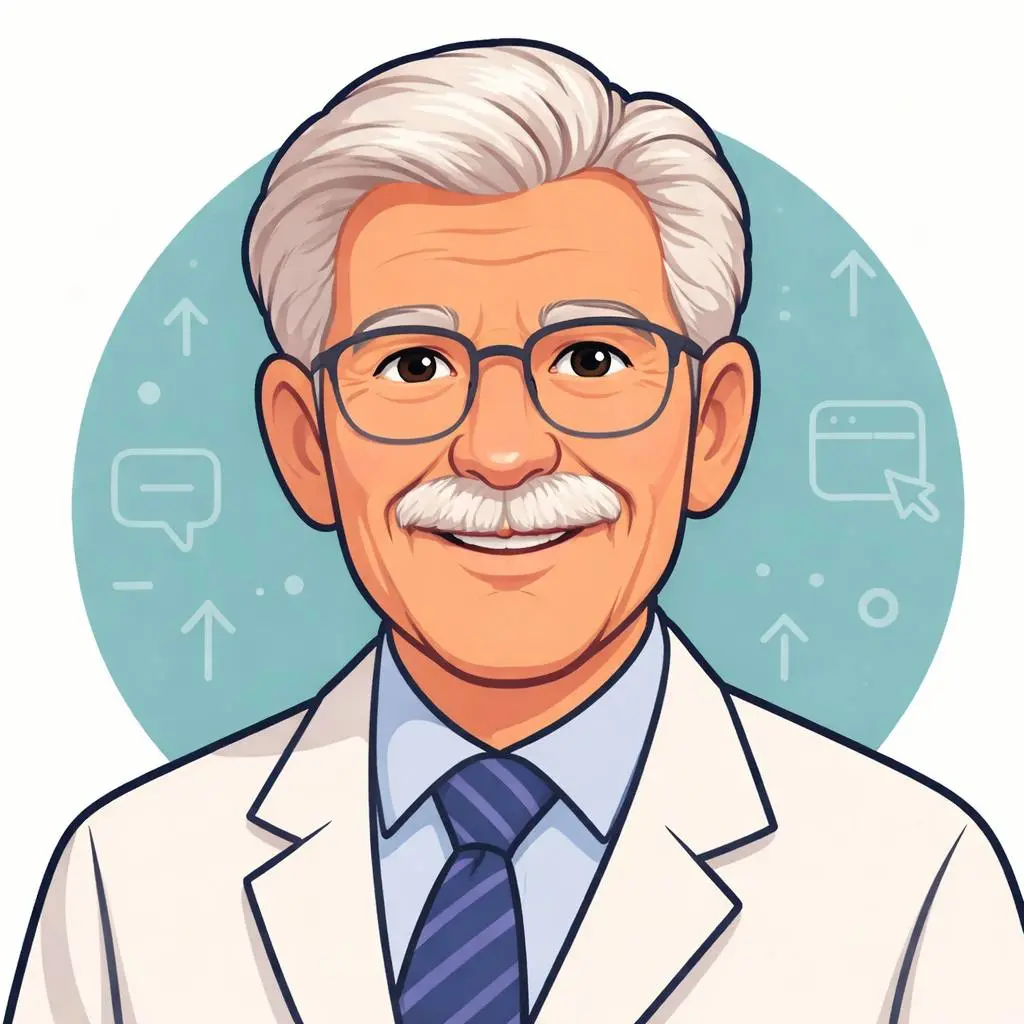Choosing the right doctor is one of the most important decisions we make when it comes to our health. A good doctor is not only someone who has the appropriate training, but also someone who understands our personal needs, listens to us, and knows how to provide a professional and humane response. At Pharma Care, we believe that choosing the right doctor is a personal process that requires thought and attention. In this article, we will present to you the most important considerations when choosing a doctor, and provide you with practical tools that will help you make an informed decision.
Why is it important to choose a doctor who suits our personal needs?
A good relationship with a doctor is not just a matter of convenience. Studies show that when there is a good match between patient and doctor, there is a positive impact on treatment outcomes. When you choose a doctor who suits your needs:
- You feel more comfortable sharing important medical information
- You tend to listen more to his medical recommendations.
- The doctor knows your medical history better.
- Medical treatment is personalized to your needs.
- You are more likely to follow treatment instructions
Key considerations in choosing a suitable doctor
Internship and professional training
The first step in choosing the right doctor is to make sure they have the right training and expertise to meet your medical needs. A family doctor can treat a wide range of medical problems, but in some cases you will need a specialist in a specific area.
Check the doctor's professional background: Where did he study? When did he graduate? Is he an expert in a field relevant to your medical condition? Is he a member of professional associations? Does he participate in continuing education and keep up to date with innovations in his field?
Communication approach and personal attitude
A critical aspect of choosing a doctor is how they communicate with their patients. A good doctor should be:
- Attentive – truly listens to your complaints and concerns
- Patient – does not rush or belittle your questions
- Explains well – conveys medical information in a clear and understandable manner
- Respectful – treats you with respect and considers your opinions
- Available – ready to answer questions even outside of reception hours if necessary
Availability and accessibility
Choosing the right doctor also includes practical considerations such as:
- Clinic location and accessibility
- Reception hours and adapting them to your schedule
- Queue waiting time
- Possibility to schedule appointments online
- Availability for telephone or digital response between visits
- Possibility of home visits if necessary
The practical steps for choosing the right doctor
- This is your needs. – Think about what is important to you in a doctor: Are you looking for an expert in a specific problem? Is it important to you that he or she speaks a certain language? Do you prefer a doctor of the same gender?
- Check your insurance coverage options. – Find out which doctors are included in your health insurance or health fund arrangement.
- Collect recommendations – Ask friends, family members, or other doctors you trust.
- Search for information online – Check official websites, forums, and reviews (but treat them with caution).
- Schedule an introductory meeting – Many doctors are willing to hold a short meeting to get to know you before you decide whether to choose them.
- Evaluate the initial experience – Pay attention to your feelings during the first visit: Did you feel comfortable? Did the doctor listen to you? Did he answer your questions clearly?
Types of doctors and their suitability for different needs
| Type of doctor | Main areas of treatment | When to contact him | Special considerations |
|---|---|---|---|
| Family doctor | Primary care, prevention, chronic disease management | For routine tests, common diseases, referrals to specialists | It is important that he is accessible and available, knows the family medical history |
| pediatrician | Health and care for children from birth to age 18 | Child development, vaccinations, childhood diseases | Warm attitude towards children, patience, ability to explain things to parents |
| Gynecologist | Women's health, fertility, pregnancy and childbirth | Routine checkups, pregnancy, gynecological problems | Sensitivity, privacy, specific specialization (fertility, obstetrics, etc.) |
| Specialist doctor | Specific field (cardiology, neurology, oncology, etc.) | Complex or specific medical problems | Experience in treating your specific condition, access to advanced technologies |
How do you know if the doctor is really right for you?
After your first or second visit with a new doctor, ask yourself the following questions to assess the fit:
- Did I feel that the doctor spent enough time with me?
- Did he really listen to me and address all my concerns?
- Did he explain the medical condition and treatment in a way that I understood?
- Did I feel comfortable asking questions?
- Did he treat me with respect?
- Did he involve me in making decisions about treatment?
- Do I trust his professional judgment?
If the answer to most of these questions is yes, you've probably found the right doctor. If not, consider continuing your search.
When should you consider changing doctors?
Sometimes, despite your best efforts to choose a suitable doctor, it turns out that the match is not a good one. Signs that it may be time to consider changing doctors:
- You feel that the doctor does not listen to you or disregards your complaints.
- The doctor does not explain the medical condition or treatment options clearly.
- You feel uncomfortable or distrustful during visits.
- The doctor is not available when you need him or the wait times are too long.
- You feel that treatment is ineffective or that your medical condition is not improving.
- The doctor is not open to a second opinion or other treatment approaches.
Remember: It is not unacceptable to change doctors if you feel they are not a good fit for your needs. Your health is our top priority.
Frequently Asked Questions
Is it better to choose a younger or older doctor with more experience?
There is no single right answer to this question. Younger doctors may be more up-to-date with innovative treatment approaches, while older doctors bring with them a wealth of experience. The consideration should be personal – do you prefer an innovative approach or proven experience? Sometimes, the ideal combination is an older doctor who continues to stay up-to-date with innovations in his field.
Is it important that the doctor be of the same gender as me?
For some patients, the gender of the doctor is a significant consideration, especially when it comes to gynecology or intimate exams. If you feel more comfortable with a doctor of the same gender, that is a legitimate consideration in choosing a suitable doctor. The main thing is that you feel comfortable sharing important medical information.
How can I check a doctor's professional background and reputation before choosing them?
There are several ways to check a doctor's professional background: Check the Ministry of Health website or the Israel Medical Association website for license and specialization details. Search the health insurance websites for information about the doctor. Ask for recommendations from friends, family members, or other doctors. Check professional forums or doctor rating websites, but treat online reviews with caution and appropriate reservations.
Is it worth choosing a doctor who specializes in a particular medical approach (such as complementary medicine or preventive medicine)?
Choosing a particular medical approach depends on your personal preferences and specific medical needs. If you believe in a holistic approach or are interested in combining conventional medicine with complementary medicine, look for a doctor who is open to these approaches. It is important to make sure that the doctor you choose balances innovative approaches with scientifically based practices.
What should I do if I am not satisfied with the treatment provided by the doctor I chose?
If you are not happy with your treatment, try talking to your doctor about your concerns first. Sometimes, open communication can resolve misunderstandings. If talking doesn’t help, don’t hesitate to get a second opinion or switch to another doctor. You have the right to receive medical care that you feel comfortable with and trust.
Medical Disclaimer: The information presented in this article is for general informational purposes only and is not a substitute for professional medical advice, diagnosis, or treatment. Always consult a qualified physician or other medical professional with any questions you may have regarding a medical or health condition. Never disregard or delay seeking professional medical advice because of something you have read in this article. If you are experiencing a medical emergency, call 911 immediately or go to the nearest hospital.

פרופ’ אלון גרין הוא מומחה לפסיכיאטריה קלינית ומחקר תרופתי, עם התמחות בפיתוח והתאמת תרופות מרשם למגוון מצבים נוירו-פסיכיאטריים. בעל ניסיון של למעלה מ־35 שנה בעבודה קלינית ואקדמית, וכיהן כמרצה ופרופסור אורח במספר אוניברסיטאות מובילות בארץ ובחו”ל. עמד בראש יחידות מחקר וטיפול בבתי חולים ציבוריים ומרכזים רפואיים מתקדמים. תחומי עיסוקו כוללים קשב וריכוז (ADHD), הפרעות חרדה והרגעה, דיכאון קליני והפרעות מצב רוח, וכן טיפולים תרופתיים תומכי דיאטה ואיזון מטבולי. משלב גישות מבוססות ראיות עם חדשנות פרמקולוגית, ופרסם עשרות מאמרים מקצועיים בכתבי עת מדעיים, תוך תרומה משמעותית להבנת מנגנוני פעולה של תרופות והשפעתן הקלינית.







